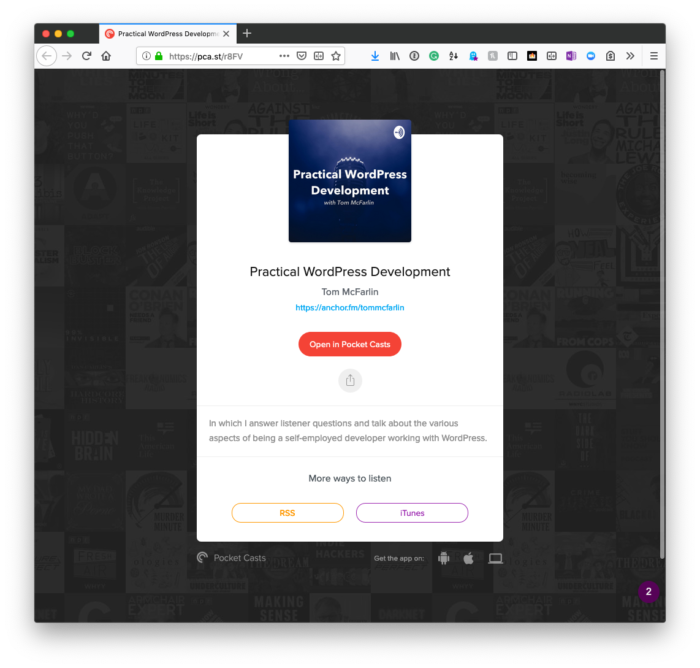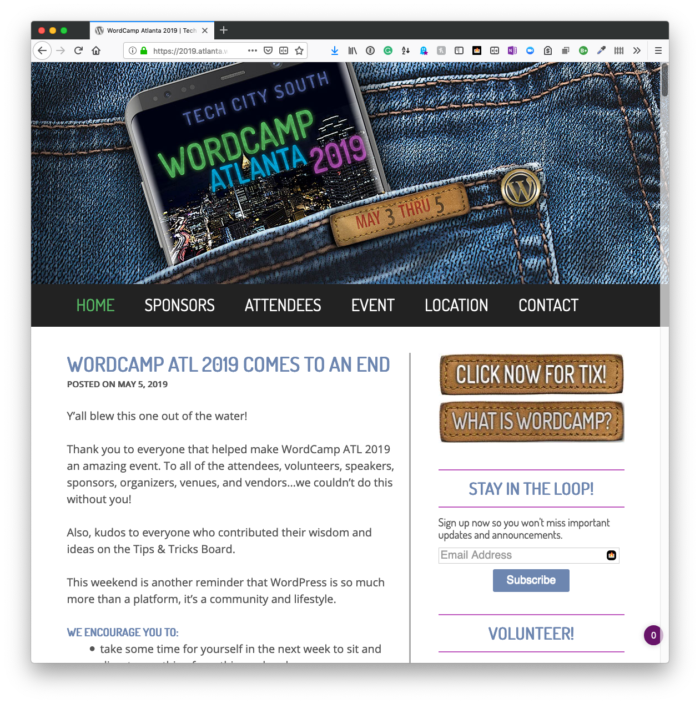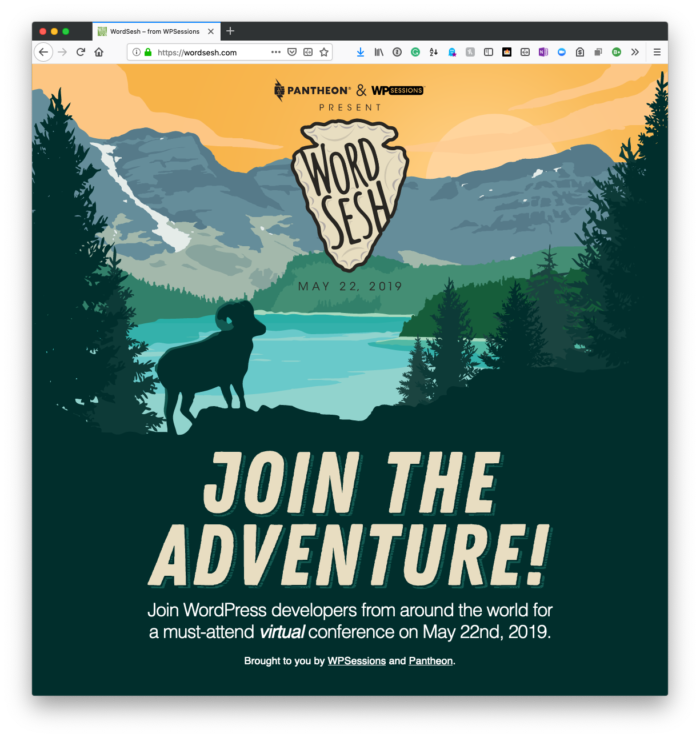Regarding the podcast, two of the best things that’ve happened since the previous episode is that the number of questions is steadily increasing and people are saying they appreciate the length of the show.
So that’s good stuff, as far as I’m concerned.
Anyway, if you’ve previously subscribed to the show, then this episode should be available in your favorite app or service.

With that, here are the notes for this episode.
Events and Competence
1. Follow-Up
Last month, I talked about conference headed this way. One’s come, and one’s on its way.
WordCamp Atlanta
In the first weekend in May, I joined a bunch of others at WordCamp Atlanta. We had the opportunity to hear a keynote from Chris Lema, who I’m sure that many of you listening already know.

And later I gave my talk on building web applications with WordPress (for which I’m still working on the accompanying blog post).
One of the things I liked this year was hearing more and more people talk about using object-oriented programming in WordPress or taking advantages of some of the features of newer versions of PHP.
I dig that the WordPress economy is moving in that direction.
WordSesh
WordSesh is coming in just a few weeks. If you can’t make it to any WordCamps, then this is a solid opportunity to get as close to an experience as possible.

There’s a day-long set of events scheduled, a virtual hallway track, and even some digital swag.
Questions
The Event-Driven Design Pattern
What are some recommended PHP design patterns that are useful for WordPress theme and plugin development?
I elaborate on this far more in the podcast, but in the answer I include:
- I recommend reviewing the Event-Driven Design Pattern because it’s arguably how WordPress core provides so many APIs to us.
- A WordPress exposes point or a hook as we’re used to hearing it, where we can set up a function or a class to respond to when that hook fires. WordPress picks it up, runs its logic, and then it returns to what it was doing.
Now there’s a lot more to it as far as WordPress is concerned, but understanding the basics of the pattern can help you conceptualize how the functionality works.
On Blogging and Competence
How important is blogging in developing WordPress skill-competence?
- Many would say it’s reading others code, studying the work of industry peers, writing your projects, and learning from both the successes and failures.
- Blogging about what you’re learning or what you’ve done can sharpen your skill competence.
- It’s one thing to write code specifically for a project or, more generally, for a computer. But can you explain to an audience, in this case through blogging, how to do something? Are you able to convey it in a way that helps them shortcut their learning?
- The code in and of itself can be difficult to read no matter how readable you actually aim to make it. There are a lot of constraints imposed on you when building something that others may presume but aren’t aware of. Secondly, if it were just as easy to read as anything else, it wouldn’t be called code.
I do a much deeper dive on this in during the episode.
Before Episode 6
With that, note that I do read every single email and tweet regarding this podcast and so what I can to answers the questions or address some comments as I see them. And thanks for sending them!

